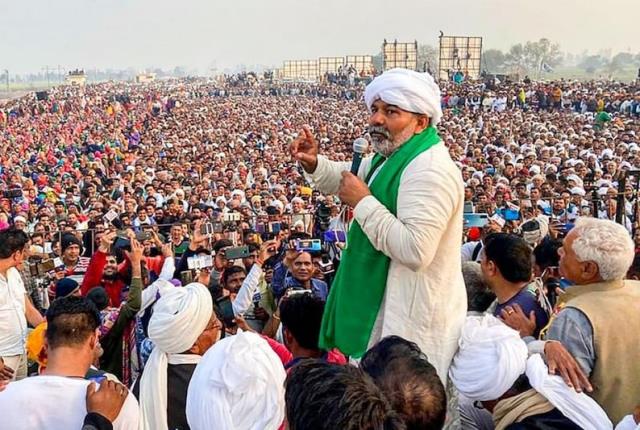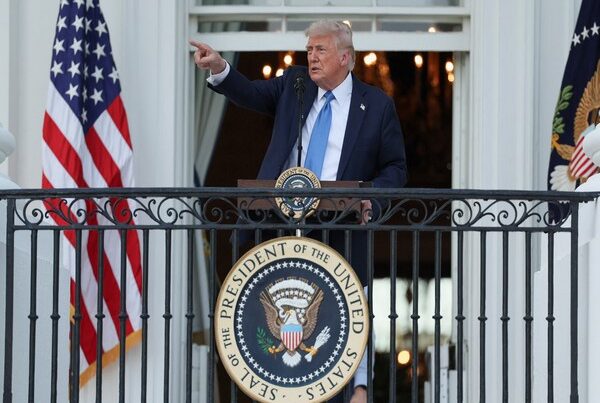
Western UP Gets A Healing Touch
September 5 this year marked a sweet rupture in the green expanse of the sugarcane belt of western Uttar Pradesh, where people are laid-back and love their ‘barfi and laddoo’ as much as their dense sweet tea with lot of milk. The rupture is more than symbolic. It seems its back to old times — of peace, brotherhood and harmony. And that was how it was, before it was violently ravaged by the systematic ‘social engineering’ of organized hate politics, combined with brutal assaults on women, especially those belonging to the minority community.
This was the darkest and most tragic chapter in the contemporary history of western UP. Indeed, it all started in 2013, before the Lok Sabha elections in the summer of 2014. The timing seemed perfect for those who master-minded it all!
What happened in 2013 was unprecedented and unexpected. Huge hate rallies marked by inflammatory slogans and speeches led by the leaders of the right wing. A high-decibel, diabolical discourse driven by the fake narrative of ‘love jihad’. Violence, anarchy and bloody riots let loose. A society which lived in peace was rapidly torn asunder. Homes destroyed, many turned homeless, and internally displaced were forced to move into make-shift camps. Plus, scores of women assaulted, men killed. As usual, rumours floated thick and fast.
Such a nightmare had never visited Western UP ever in the past. Not even before and after the Babri Masjid demolition led by LK Advani and his Sangh Parivar apparatus, when violence erupted across UP and elsewhere, leaving a trial of bloodshed and social divisions. In contrast, in this green expanse, it was always human and social bonding which prevailed – harmony and happiness, taken for granted, trapped in a slow and sweet time warp. And the ‘lotus’, never really had any stakes here – except among sections of the traders and shopkeepers of commercial towns like Saharanpur.
It took a while. A long while. For wounds to heal, and the ruptures to repair.
There were sustained efforts on the ground by secular leaders and activists, local opinion-makers, political parties, civil society activists and farmer’s collectives, to heal the simmering wounds. It was difficult and against the dominant, negative current of the times. It seemed that something short and brutish had changed things for eternity. It was hard to imagine that ‘normalcy’ of the old times would ever return.
This was a land united by all communities – people shared their labour and the fruits of their labour in each other’s lands. Landlords were largely benevolent. People shared resting places under the big tree, and quaint little tea shops, hukkahs and gossip, little, muddy lanes and by-lanes, festivals, weddings and family occasions, love, respect and friendship. An organic cultural and social unity found its presence here – and hate was marked by its absence.
ALSO READ: Mahapanchayat Has Revived Farmers Movement
That is why September 5 this year marked a historic rupture. The massive farmers’ movement, which began in September last year against the three farm bills, returned like a luminescent sign of stoic resistance and struggle, and brought with it, sweet and shared memories. The smell of harmony and unity filled the air.
Indeed, as the festive season arrives, the memory of the expanse of mustard flowers with its stunning Van-Gogh landscapes will continue to linger in the sugarcane belt of Western UP, like the sticky, delicious fragrance of melting jaggery in the atmosphere. It’s like a childhood memory which refuses to go away – lingering like a precious picture postcard, across the sugar mill factories strewn in the horizon. In the 1970s and 80s, long caravans of bullock carts would carry sugarcane to the mills, with mischievous kids running after them and stealing the ‘ganna’. They still do.
The only difference is that the caravans are often facing tough times. The farmers are suffering not only huge economic losses due to the pandemic and lockdown – but also because they feel that the central and state governments in UP have yet again short-changed them.
From Saharanpur to Baraut and Baghpat, or, back from Meerut and Muzaffarnagar to Shamli, where, at the dusty bus stop, you could still find a Ruskin Bond book, along with Gulshan Nanda and best-selling Hindi pulp fiction, this green revolution belt has been prosperous. Its fertile landscape and canals had turned its fields into gold. The landlords, affluent Jats and Muslims, along with other communities, lived a peaceful life. Many Muslims and Hindus worked in each other’s land. Between sugarcane fields and mango orchards, and a variety of crops and dairy farming, around the transit points of rich commercial mandis in Saharanpur, Meerut and Muzaffarnagar, communalism or ‘love jihad’ was the last thing in their mind.
Therefore, on Teacher’s Day, September 5, 2021, the farmers of Western UP and Haryana, not only gave a stirring and sterling lesson to the nation, the day will mark a social and political rupture in the contemporary history of India. This is especially so because the secular and pluralist social fabric, as well as the essence and spirit of the Indian Constitution, have been under severe strain in recent times.
ALSO READ: Farmers Agitation Is Modi Govt’s Biggest Test
On September 5, and reporters will tell you, it was an ocean of people, and not simply a rally. People spilled from over the rally ground in Muzaffarnagar into the town, and across the markets, streets and highway. Every tractor full of people had only one destination – the Kisan Mahapanchayat. Tens of thousands of farmers and their families joined from across Western UP and Haryana, while farmers joined from distant places in solidarity, including from Karnataka, from where a woman leader gave a soul-stirring speech. There were farmers’ unions from Andhra Pradesh, Maharashtra, Punjab, Bihar, and other states, including those with red flags. More than 300 unions joined the United Kisan Morcha, along with all the ‘khaps’ of Western UP.
This is when a sweet moment of symbolism, in chorus, occurred as a remarkable public spectacle. Bhartiya Kisan Union (BKU) leader, Rakesh Tikait, son of legendary farmer’s leader, Mahender Singh Tikait, who once laid a long siege at the Boat Club when Rajiv Gandhi was prime minister, repeated a time-tested slogan of his father. This was the prized moment, which the entire farmer’s movement at the borders of the capital since one year in heat, cold and rain, stoic and resilient, was waiting for. And this moment arrived with a huge orchestra of optimism – when tens of thousands of farmers joined the slogan, originally recited by a father, and, now, repeated by his son.
Allahu Akbar, shouted Rakesh Tikait from the stage. And the crowd roared — Har Har Mahadev!
The die has been cast before the UP elections! The stage has been set. The sweet-smelling wind with the addictive fragrance of melting jaggery will henceforth cross into Eastern UP and across the Ganga – where thousands were buried during the deathly second surge of the killer virus. It will bring healing and hope. And it will teach a lesson, yet again, of what we learnt in our secular childhood textbooks: ‘India is a land of Unity in Diversity’.
The Slogan Allah o Akbar responded with Har Har Mahadev or vice Versa was first raised in 1857 by the rebel soldiers and since, Meerut
Muzaffar Nagar, Shamli, Baraut, Deoband, Thanabhavan, Moradabad etc had played a key role in the revolt of 1857, public memory continues to resonate with it.



